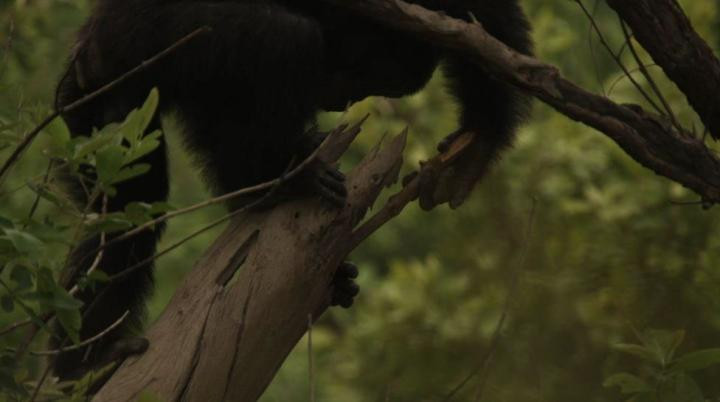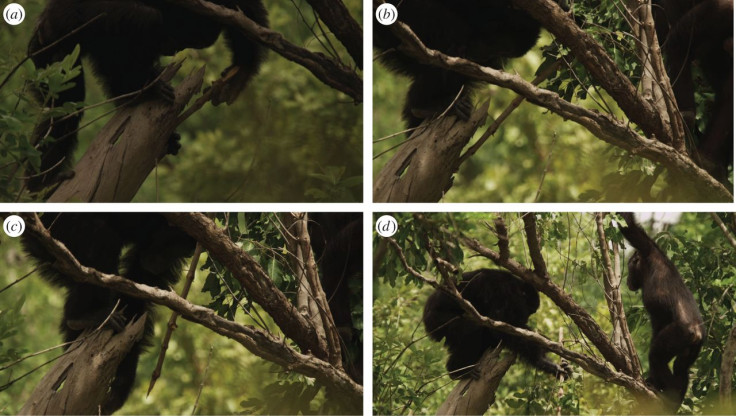Female chimpanzees hunt with spears while lazy males wait to steal glory - sound familiar?

Female chimpanzees wielding spears are far more likely to use tools to hunt than males, a study has found.
The behaviour was found in one population of Savannah chimps at Fongoli, Senegal, in which social tolerance is high – individual chimps are allowed to capture and eat their own prey, uncommon for most groups.
Researchers believe this behaviour could have important implications for the evolution of hominin hunting, with tool-assistance playing a role among humans' early ancestors.
The study, published in the journal Royal Society Open Science, builds on research from 2007 where these female chimps were first seen to predominantly hunt using tools. At the time, the study by Jill Pruetz was criticised because of the small sample size.
However, researchers lead by Pruetz at Iowa State University have now documented over 300 tool-assisted hunts among this population and they support the initial findings of female preference for tool hunting.
Adult male chimps were found to be the main hunters and tended to catch prey by hand. However, in the tool hunts, 175 were by females and 130 by males. The chimps tended to use spear-like tools to jab at animals hiding in tree cavities.
"What would often happen is the male would be in the vicinity of another chimp hunting with a tool, often a female, and the bush baby was able to escape the female and the male grabbed the bush baby as it fled," Pruetz said.
Why other chimp populations do not display this behaviour is unknown, but it is thought that the social structure of the Fongoli better allows for female hunting.

"At Fongoli, when a female or low-ranking male captures something, they're allowed to keep it and eat it. At other sites, the alpha male or other dominant male will come along and take the prey. So there's little benefit of hunting for females, if another chimp is just going to take their prey item," Pruetz said.
In terms of what this means for early hominins, the authors point out that non-human primate models provide an insight into behaviour. Traditionally, apes have been used as models to understand hunting in human evolution.
"Like humans, chimpanzees exhibit sex differences in hunting behaviour, with males hunting more than females. Although in some human societies women's hunting contributes significantly to calories brought in via hunting, and their hunting styles are considered more efficient than men's in some cases, human males are also typically regarded as the most important hunters in a group or population," Pruetz said.
Pruetz said most theories suggest hunting by early hominins was primarily carried out by adult males. However, their findings would suggest that hunting is "less adult male-biased among our closest living relatives than previously believed when tools are used".
"We suggest that more detailed examination of female hunting behaviour can be informative in understanding the nature of sex differences in feeding and foraging, which can ultimately inform our understanding of extinct hominin behavioural ecology," Pruetz said.
© Copyright IBTimes 2025. All rights reserved.






















